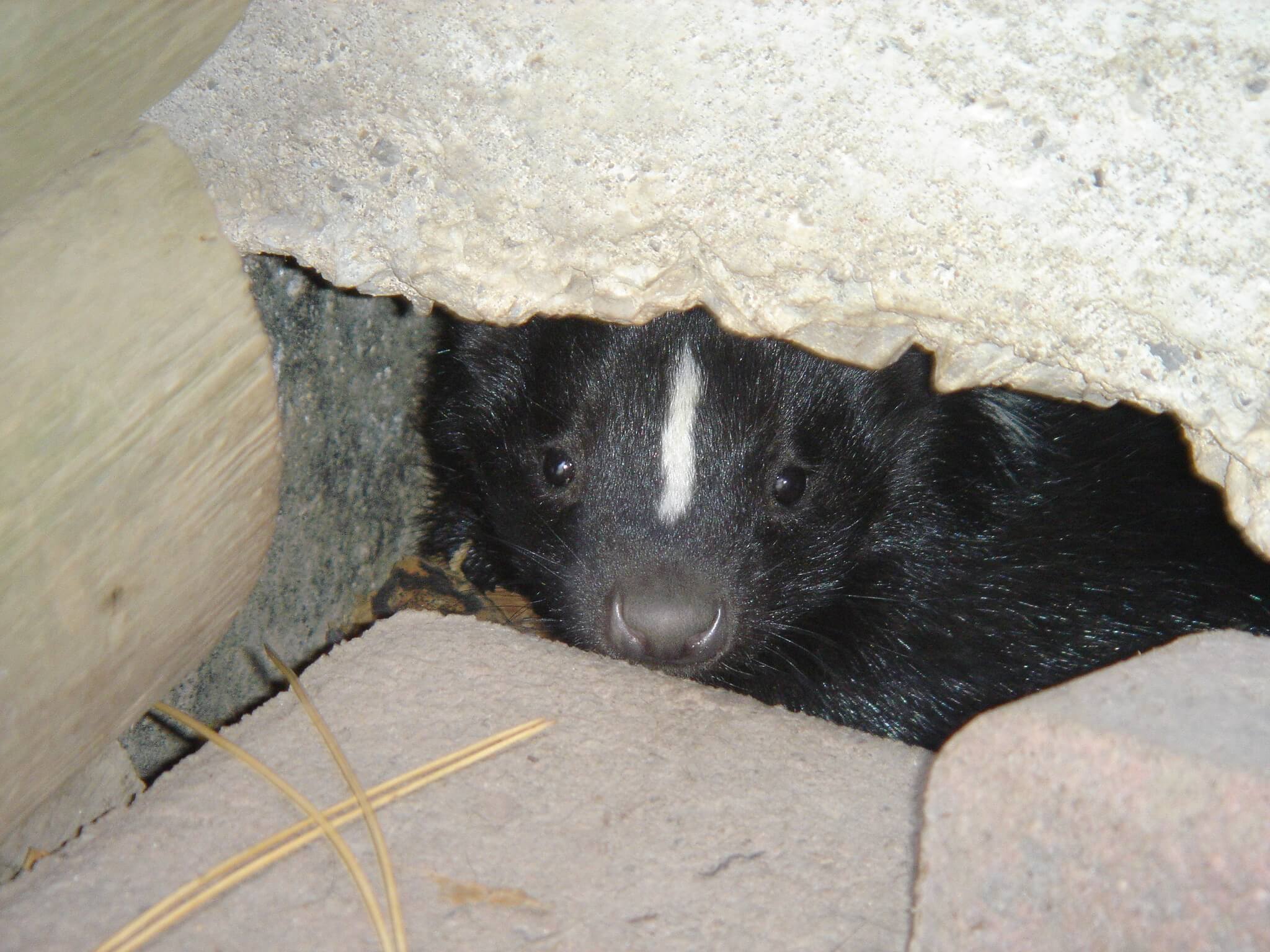Skunks may be no bigger than a cat, but the very presence of one can send the toughest person running away. No one wants to get in a feud with a skunk. But Skedaddle wants people to learn more about these nocturnal creatures and why professional humane wildlife prevention in Oshawa is important when dealing with them. Here are some of the most common questions about skunks.
Why Do Skunks Spray?
Skunk spray is a warning, not an offensive attack. It’s also a last resort. If you or your dog corners a skunk, that skunk will likely hiss and growl to get you to back off. Spraying isn’t a first response, however, because once the animal sprays it can take almost two weeks to replenish the supply. Skunks can spray up to six times in succession once they’ve decided to use their most effective defence mechanism. The putrid odor is difficult to neutralize.
What Do Skunks Eat?
Skunks are omnivores. They generally eat insects, grubs and other bugs and sometimes small animals. They will also eat berries, roots, fungi, nuts and even pet food. In urban areas, skunks will often take snacks from a garbage bin. You shouldn’t leave a source of food out, because you could end up with a family of skunks living under your porch. If you see an orphaned skunk, it’s best to contact a wildlife removal specialist.
Are Skunks Dangerous to Humans?
As a general rule, skunks are not aggressive animals. Skunk spray can cause temporary blindness, but the biggest concern when dealing with skunks is rabies. A skunk that has rabies may wander around in the daylight and will be extremely aggressive. Their foraging activities may also cause damage to lawns and homes. Skunk excrement is another hazard to humans.
What Should You Do if You Come Across a Skunk?
You’re more likely to come across a skunk at dawn, dusk or during the night. Staying on a well-lit path may keep you away from skunks. If you do encounter a skunk, maintain your distance. Slowly and quietly walk away in the other direction. Sometimes, flashing a light in the direction of the skunk will scare it off.
What Do You Do if You Get Sprayed?
If you or your dog gets sprayed by a skunk, be prepared to do some work. Some people swear by tomato juice, but you may need something even stronger to neutralize the odor. You should flush your eyes or your dog’s eyes if the musk got that close. Use tepid water or an eyewash if you’re experiencing redness or tearing. Your eyes may be sensitive for a while after a skunk spray. A good natural remover is:
- 1 quart of hydrogen peroxide
- ¼ cup baking soda
- 2 teaspoons liquid dish soap, Dawn or something similar
- 1 quart lukewarm water
Mix these ingredients in a large container. It will fizz. Work the solution into the hair. Leave it on for a few minutes, but don’t get it near the eyes or mouth.
You can also find organic shampoos and odor-remover products at the store. You can use it on your hair and clothes, too. You may need to repeat the treatment multiple times, depending on how heavy the oil was sprayed. Don’t use bleach or mix it with other products.
How Can You Keep Skunks Away From Your Home?
Motion sensors or sprinklers that turn on at night are often enough to keep skunks from moving into or near your home. Professional humane wildlife prevention Oshawa is highly recommended because it can be difficult to tell a diseased skunk from one that isn’t.
Contact Skedaddle Humane Wildlife Control for skunk control and removal to keep your home safe.






